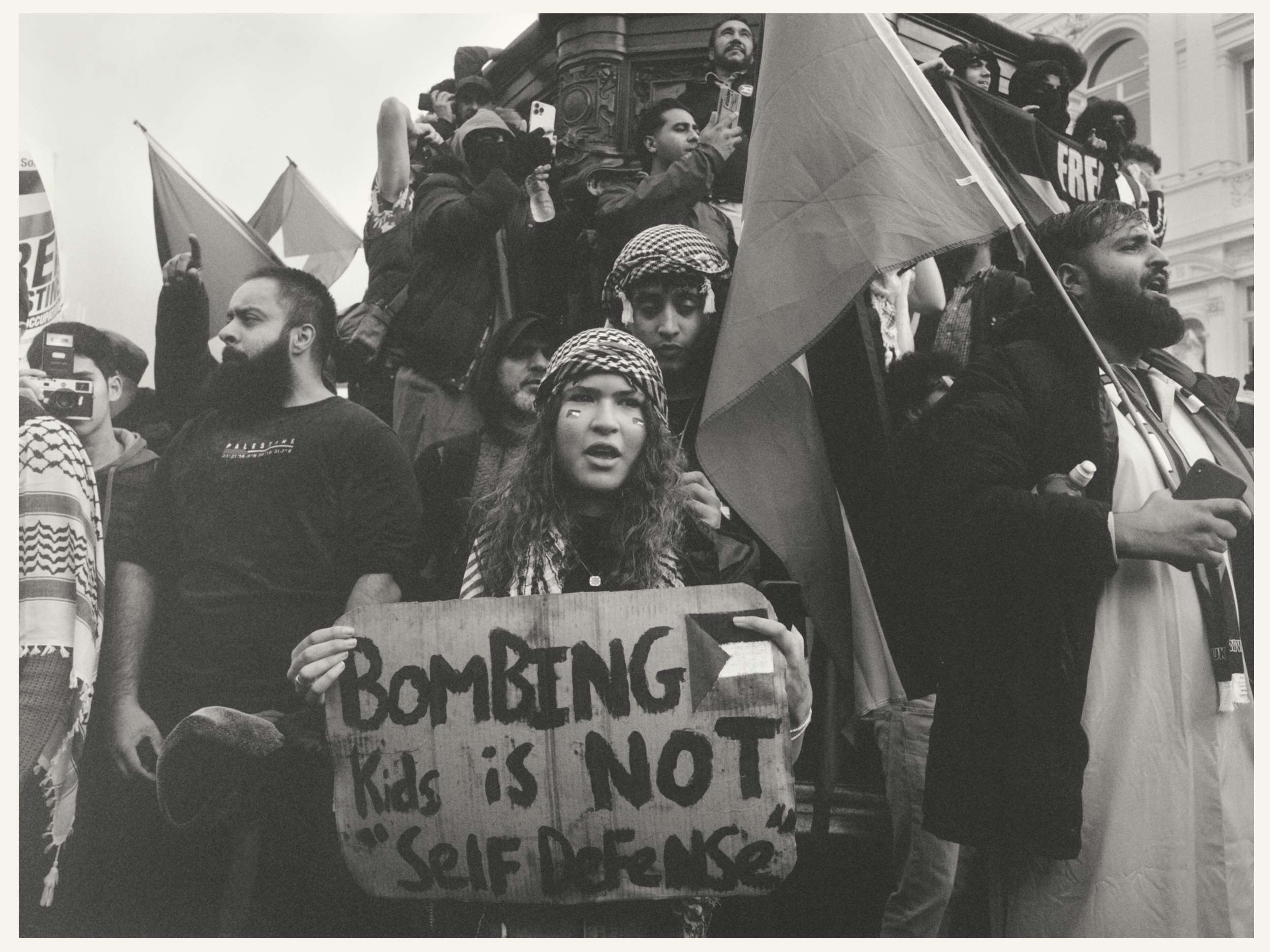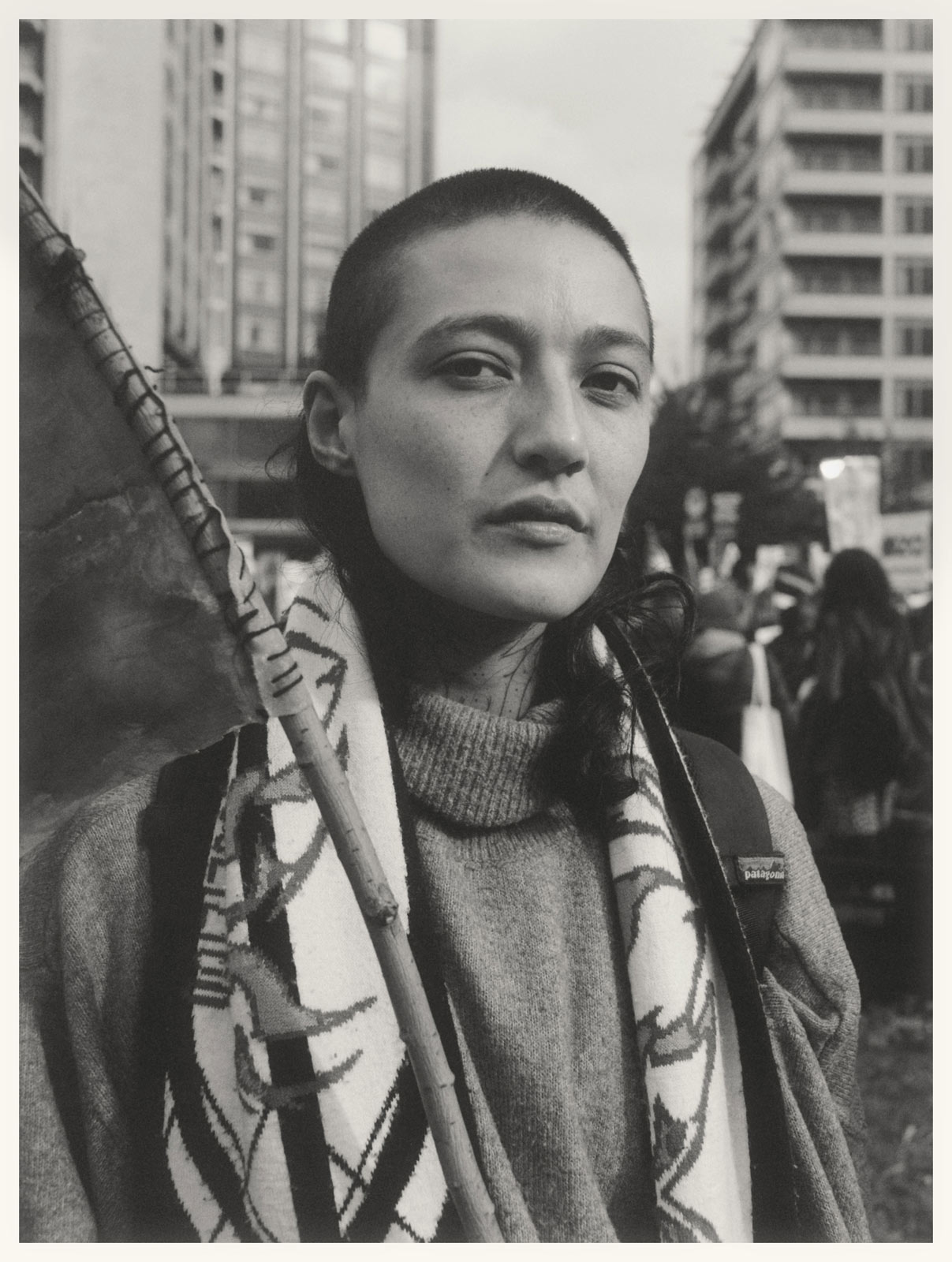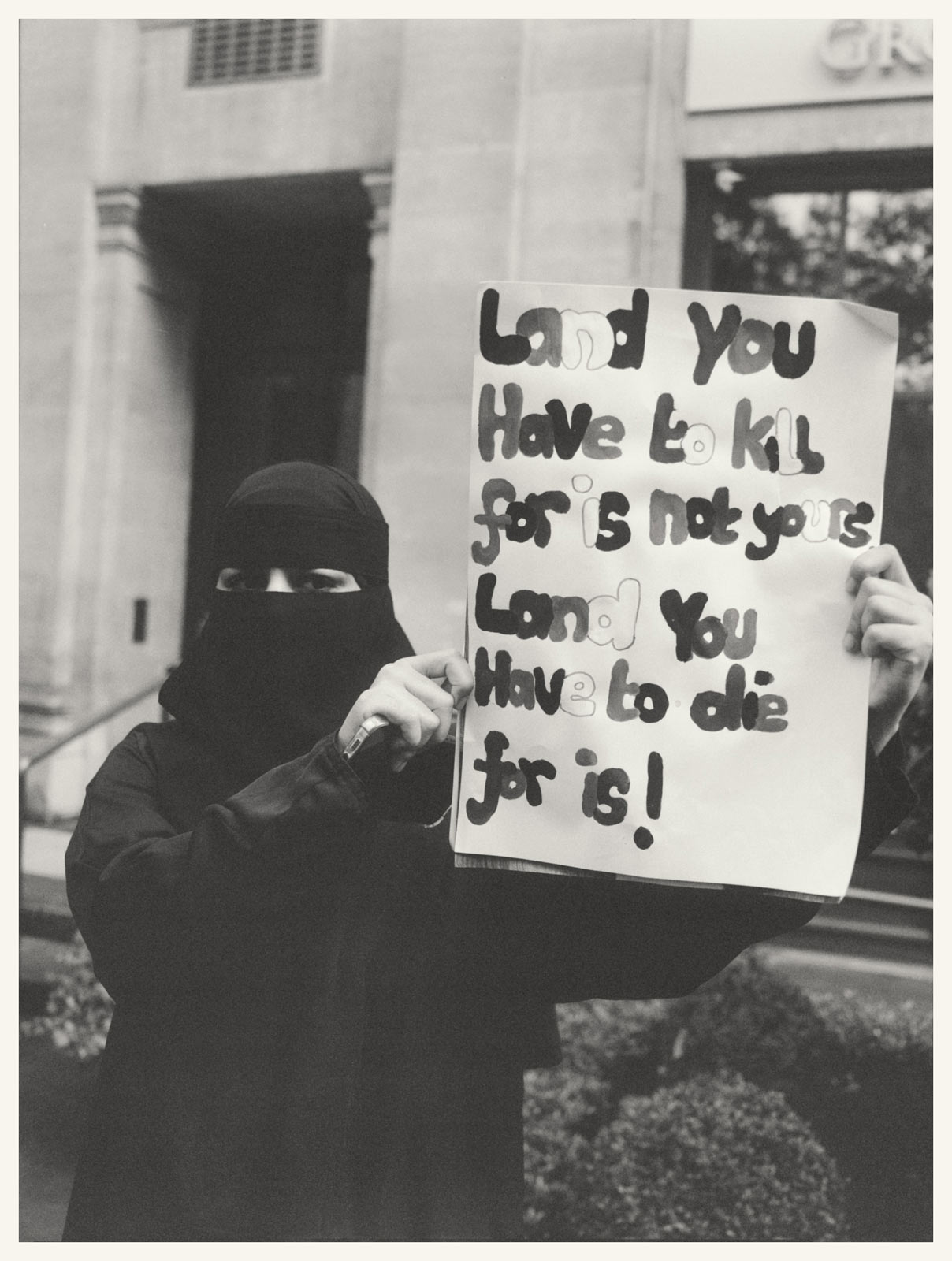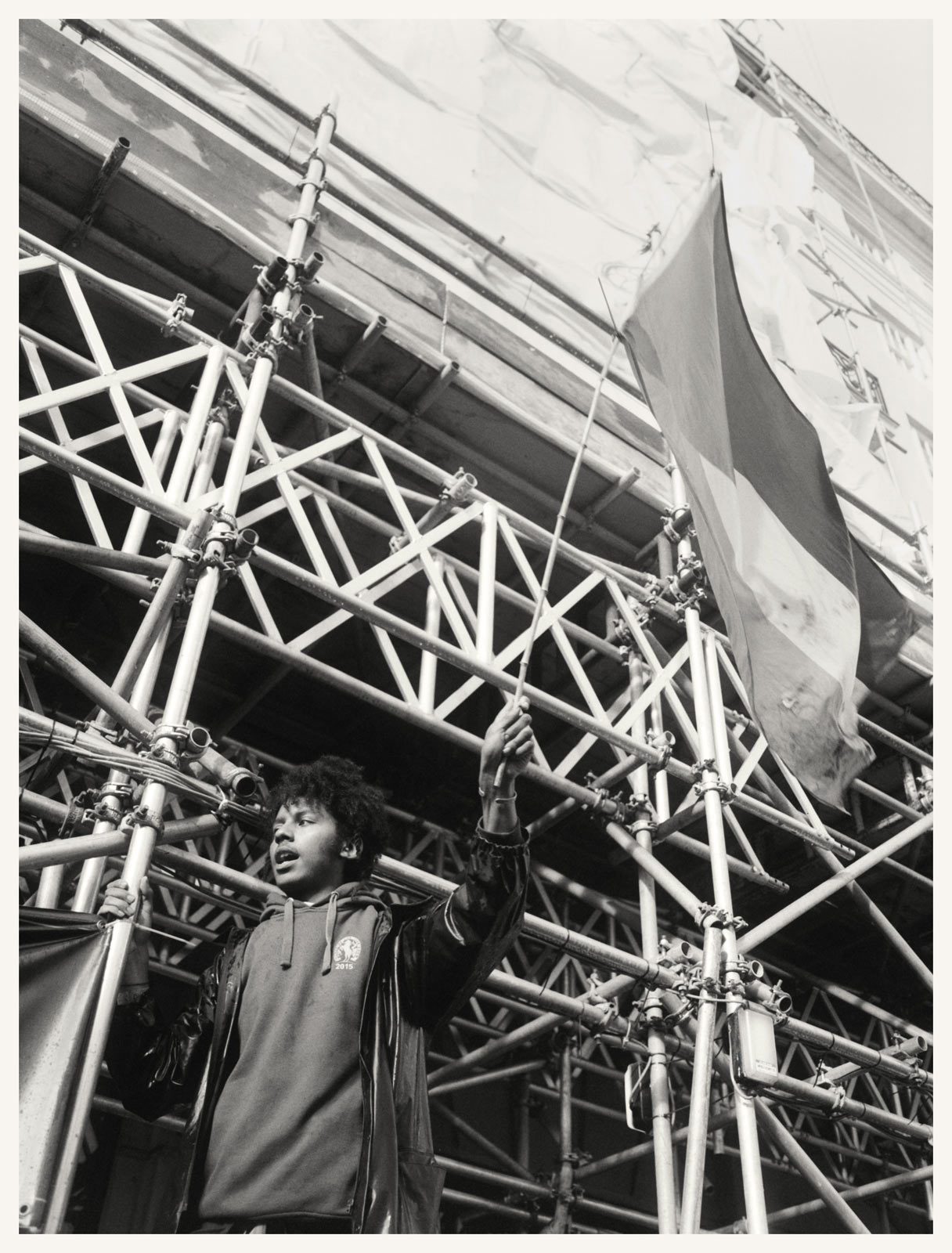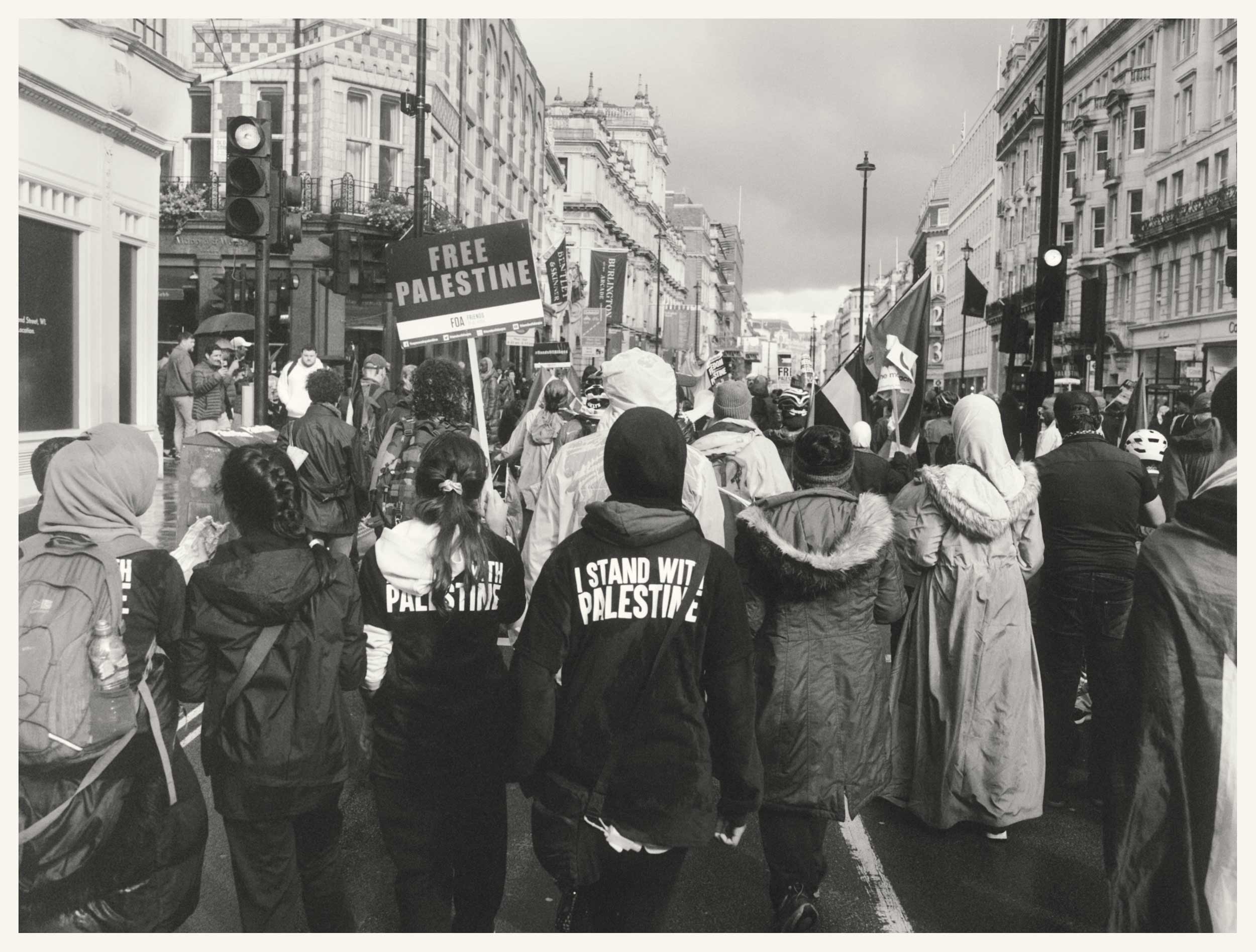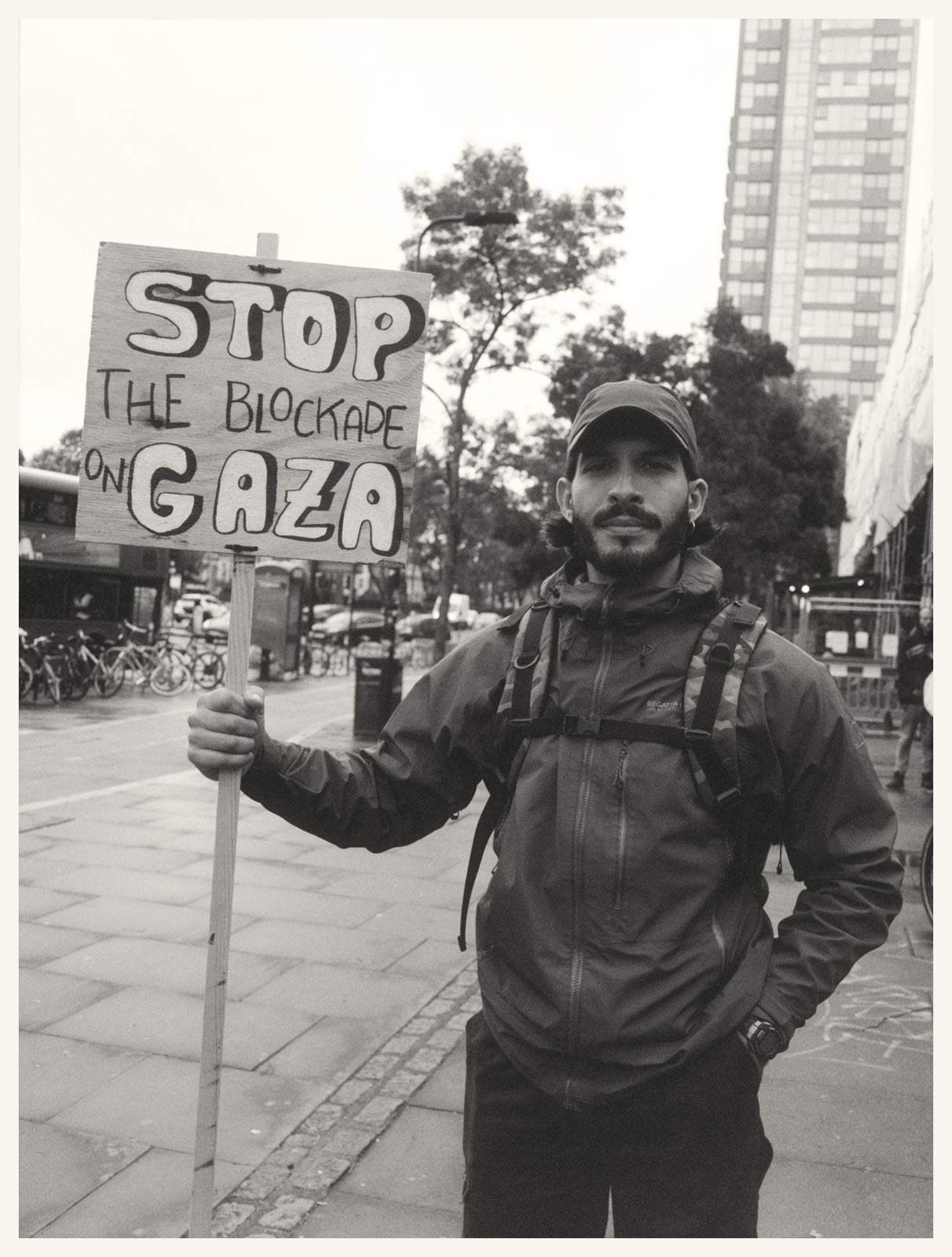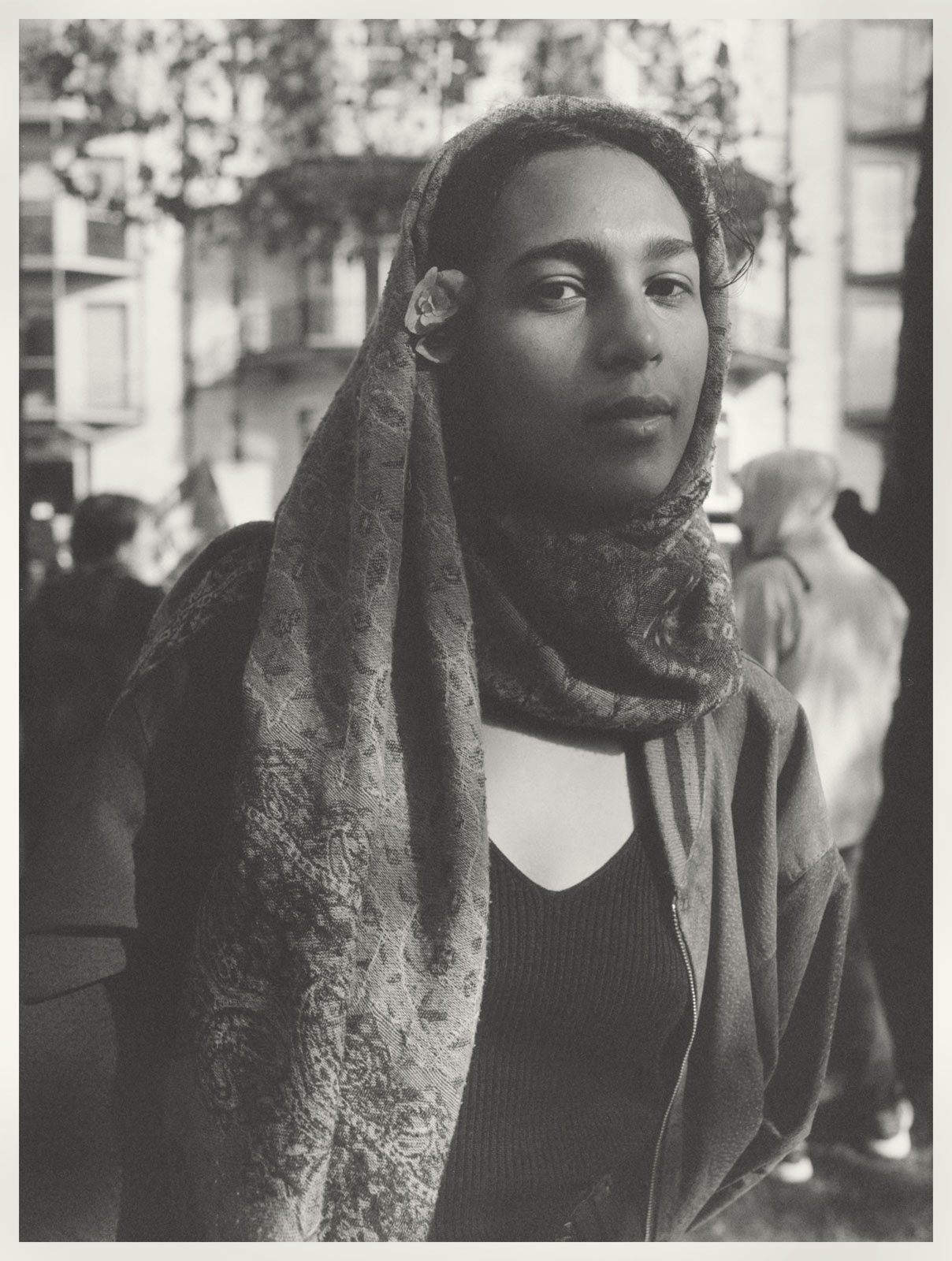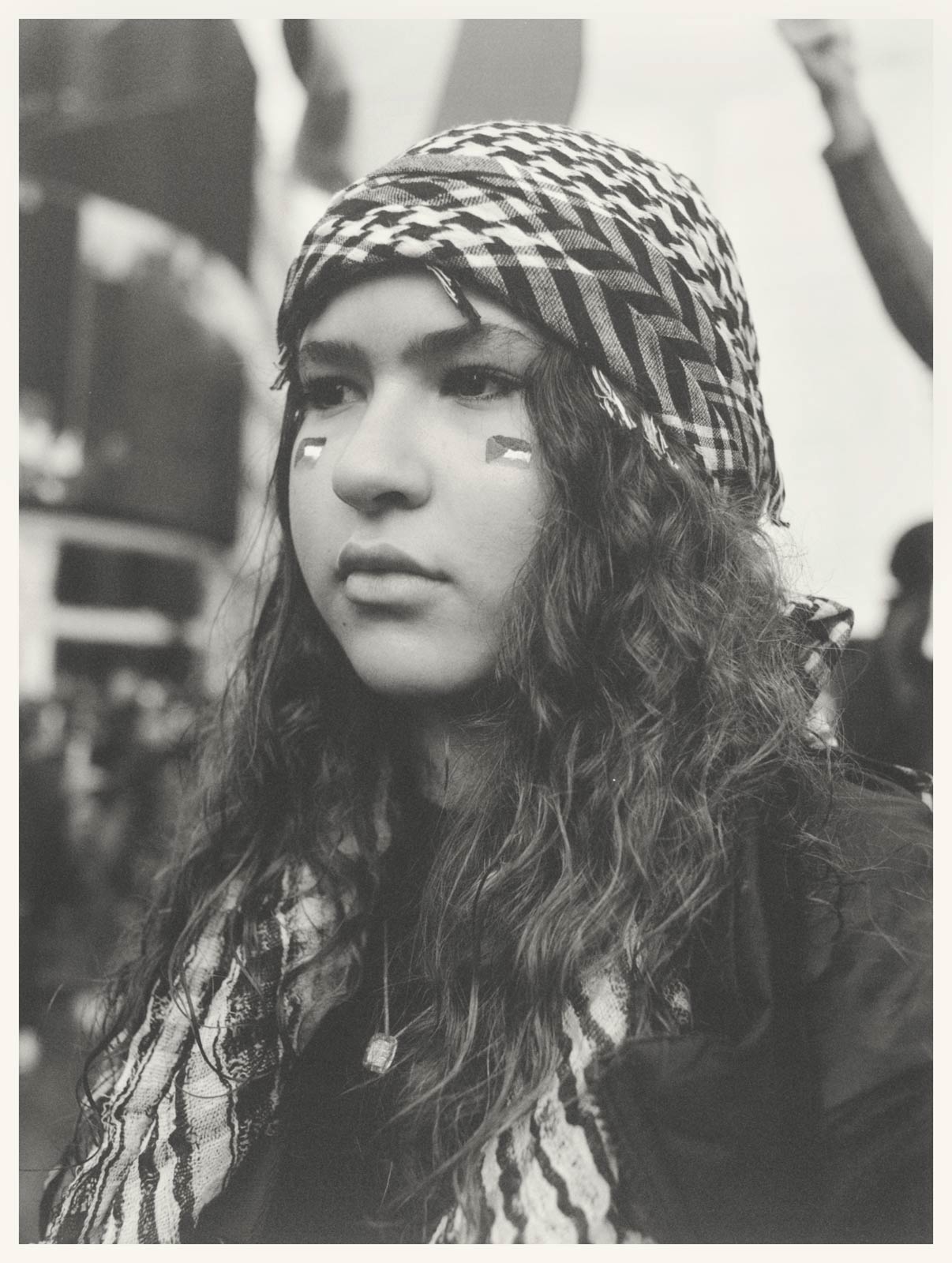An introduction to Palestinian resistance poetry—a medium for the reclamation of a people’s history
The mantra of Palestinian poets—Mahmoud Darwish, Fadwa and Ibrahim Tuqan, Muin Bseiso, and Kamal Nasser—draws inspiration from playwright and novelist Edward Bulwer-Lytton’s 1839 political play Richelieu: “The pen is mightier than the sword.” (Ibrahim Tuqan directly references it in his poem “My Homeland”: “The sword and the pen are our symbols.”) Even our greatest Palestinian intellectual, professor, and writer Edward Said, used it for the title of one of his books, The Pen and the Sword.
Under colonialism, the colonizer, in an attempt to seize control and erase the colonized, writes the greater, louder, and more dominant narrative on behalf of both parties—and in the words of Said, always sans a counterpoint. The colonizer becomes the author of its own manufactured, pseudo-heroic storyline and the speaker for the voiceless, or the oppressed. Palestinians have indirectly been asked to dismantle and dismiss their own history. And by the means of nonviolent resistance, they’ve in turn weaponized the intangibility of their oral record through the tangibility of poetry. In Palestine, all fictional writing is always, and inherently, nonfiction.
Poetic resistance—an amalgamation of heroism, pain, celebration, tragedy and courage, and artistic survival—is a safe haven for Palestinian personal narrative, experience, nationalism, and oral history. It tells the reader: “I am Palestinian. I exist. This is my story and the history of my land.” It relies on both present, direct memory (before exile) and post-memory—inherited memory (after exile). And ultimately, it is not all peaceful. The culture of Palestinian poetry combines aesthetics and violence as elements that serve the overall resistance in reclaiming its stolen, indigenous narrative.
As homes, churches, mosques, schools, and hospitals—places that hold physical relics and memories—have been destroyed in Occupied Palestine since the start of the ongoing Nakba (or the “Catastrophe,” which led to the displacement of over 750,000 Palestinians and the deaths of 15,000 more in 1948), Palestinians have found solace in writing. This writing is often valid, repressed rage, alchemized into a stylized, almost romantic condensation of aggression. It has become one of the most straightforward responses to colonial suffering, as manifested in revolutionary writer Ghassan Kanafani’s infamous phrase: “The bodies die but not the idea.”
Below are the words of Palestinian and Arab poets who have written under siege, in exile, and in the name of resistance. They have left, and continue to leave, a profound impact on Palestinians and revolutionary movements worldwide for the past 75 years.
Excerpt from “Silence For Gaza” by Mahmoud Darwish
Gaza is not the most beautiful city.
Its shore is not bluer than the shores of Arab cities.
Its oranges are not the most beautiful in the Mediterranean basin.
Gaza is not the richest city.
It is not the most elegant or the biggest, but it equals the history of an entire homeland, because it is more ugly, impoverished, miserable, and vicious in the eyes of enemies. Because it is the most capable, among us, of disturbing the enemy’s mood and his comfort. Because it is his nightmare. Because it is mined oranges, children without a childhood, old men without old age and women without desires. Because of all this it is the most beautiful, the purest and richest among us and the one most worthy of love.
We do injustice to Gaza when we look for its poems, so let us not disfigure Gaza’s beauty. What is most beautiful in it is that it is devoid of poetry at a time when we tried to triumph over the enemy with poems, so we believed ourselves and were overjoyed to see the enemy letting us sing. We let him triumph, then when we dried our lips of poems we saw that the enemy had finished building cities, forts and streets. We do injustice to Gaza when we turn it into a myth, because we will hate it when we discover that it is no more than a small poor city that resists.
We do injustice when we wonder: What made it into a myth? If we had dignity, we would break all our mirrors and cry or curse it if we refuse to revolt against ourselves. We do injustice to Gaza if we glorify it, because being enchanted by it will take us to the edge of waiting and Gaza doesn’t come to us. Gaza does not liberate us. Gaza has no horses, airplanes, magic wands, or offices in capital cities. Gaza liberates itself from our attributes and liberates our language from its Gazas at the same time. When we meet it—in a dream—perhaps it won’t recognize us, because Gaza was born out of fire, while we were born out of waiting and crying over abandoned homes.
It is true that Gaza has its special circumstances and its own revolutionary traditions. But its secret is not a mystery: Its resistance is popular and firmly joined together and knows what it wants (it wants to expel the enemy out of its clothes). The relationship of resistance to the people is that of skin to bones and not a teacher to students. Resistance in Gaza did not turn into a profession or an institution.
It did not accept anyone’s tutelage and did not leave its fate hinging on anyone’s signature or stamp.
It does not care that much if we know its name, picture, or eloquence. It did not believe that it was material for media. It did not prepare for cameras and did not put smiling paste on its face.
Neither does it want that, nor we.
Hence, Gaza is bad business for merchants and hence it is an incomparable moral treasure for Arabs.
What is beautiful about Gaza is that our voices do not reach it. Nothing distracts it; nothing takes its fist away from the enemy’s face. Not the forms of the Palestinian state we will establish whether on the eastern side of the moon, or the western side of Mars when it is explored. Gaza is devoted to rejection… hunger and rejection, thirst and rejection, displacement and rejection, torture and rejection, siege and rejection, death and rejection.
Enemies might triumph over Gaza (the storming sea might triumph over an island… they might chop down all its trees).
They might break its bones.
They might implant tanks on the insides of its children and women. They might throw it into the sea, sand, or blood.
But it will not repeat lies and say ‘Yes’ to invaders.
It will continue to explode.
It is neither death, nor suicide. It is Gaza’s way of declaring that it deserves to live. It will continue to explode.
It is neither death, nor suicide. It is Gaza’s way of declaring that it deserves to live.
Excerpt from “The Wrathful” by Nizar Qabbani
O the young students of Gaza, teach us
From whatever you have, we have forgotten…
Teach us how to be men
Some men had become like powder
Teach us how stones in the hands of children
Become precious diamonds…
How a child’s bike becomes a bomb
And cassettes made of silk become tools for an ambush
How the bottle of milk in the hands of a prisoner
Becomes a knife,
O the children of Gaza, do not pay attention to our media
And do not hear us…
Hit hard with all your powers
Settle your scores and do not consult us…
“The Deluge and the Tree” by Fadwa Tuqan
When the hurricane swirled and spread its deluge
of dark evil
onto the good greenland
‘They’ gloated. The western skies
reverberated with joyous accounts:
‘The Tree has fallen !
The great trunk is smashed! The hurricane leaves no life in the Tree!’
Had the Tree really fallen?
Never! Not with our red streams flowing forever,
not while the wine of our thorn limbs
fed the thirsty roots,
Arab roots alive
tunneling deep, deep, into the land!
When the Tree rises up, the branches
shall flourish green and fresh in the sun
the laughter of the Tree shall leaf
beneath the sun
and birds shall return
Undoubtedly, the birds shall return.
The birds shall return.
Excerpt From “Do Not Reconcile” by Amal Dunqul
Do not reconcile
until existence returns to its moving cycle
the stars to orbit
the birds to their song
the sands to their grain
and the martyr to his awaiting daughter.
Everything was destroyed in a fleeting moment:
youth, the joy of family, the sounds of horses, getting to know a guest,
the humming of the heart upon seeing sprouts in the garden,
the prayer for seasonal rain,
the elusion of the heart when it sees the bird of death flying over deathly duels.
Everything was destroyed upon a licentious whim
and the one who assassinated me was not a god
such that he could kill me with his will
he was not more noble than I
such that he could kill me with his knife
he was not more clever than me
such that he could kill me through deceit.
Do not reconcile
for reconciliation is nothing but a treaty
between two equals
(by the honor of their hearts)
otherwise it cannot be true
the one who assassinated me was just a thief
who stole my land right in front of my eyes
as the silence was sarcastically laughing!
“Travel Tickets” by Samih Al-Qasim
On the day you kill me
You’ll find in my pocket
Travel tickets
To peace,
To the fields and the rain,
To people’s conscience.
Don’t waste the tickets.
Excerpt from “The Battle” by Muin Bseiso
If I fall in the struggle, comrade, take my place.
Gaze at my lips as they stop the wind’s madness.
I have not died. I still call you from beyond my wounds.
Bang your drum so that the people might hear your call to battle.
Excerpt from “Late Olives” by Ibrahim Nasrallah
I will shake the hand of the general
on his way to war
hoping he would not return
I will shake the hand of the killer
on his way to the crime
hoping he would die before he arrives
I will shake the hand of the song
on its way to dawn and sing
so that its voice remains
clean from tanks
I will shake my own hand
to reassure my poem
that we are not alone.
“It’s Also Fine” by Mourid Barghouti
It’s also fine to die in our beds
on a clean pillow
and among our friends.
It’s fine to die, once,
our hands crossed on our chests
empty and pale
with no scratches, no chains, no banners,
and no petitions.
It’s fine to have an undustful death,
no holes in our shirts,
and no evidence in our ribs.
It’s fine to die
with a white pillow, not the pavement, under our cheeks,
our hands resting in those of our loved ones
surrounded by desperate doctors and nurses,
with nothing left but a graceful farewell,
paying no attention to history,
leaving this world as it is,
hoping that, someday, someone else
will change it.
Excerpt from “I Am With Terrorism” by Nizar Qabbani
We are accused of terrorism:
if we wrote about the ruins of a homeland
torn, weak…
a homeland with no address
and an nation with no names
We are accused of terrorism:
if we throw a rose
to Jerusalem
to al-Khalil
to Gaza
to Al-Nasirah (Nazareth)
if we took bread and water
to beleaguered Troy.
We are accused of terrorism:
if we defended with full-force
our poetic heritage
our national wall
our rosy civilization
the culture of flutes in our mountains
and the mirrors displaying blackened eyes.
I am with terrorism
if it is able to free a people
from tyrants and tyranny
if it is able to save man from the cruelty of man
to return lemon, olive tree, and bird to the South of Lebanon
and the smile back to Golan
Excerpt from “State of Siege” by Mahmoud Darwish
The martyr teaches me:
No aesthetics without my freedom.
The martyr warns me:
Don’t believe their grieving ululations—
Believe my father who bursts into tears when he
Looks at my photo:
How did you manage to trade places with me, my son—
Leaving this world before me?
I should have been first! I should have been first!


